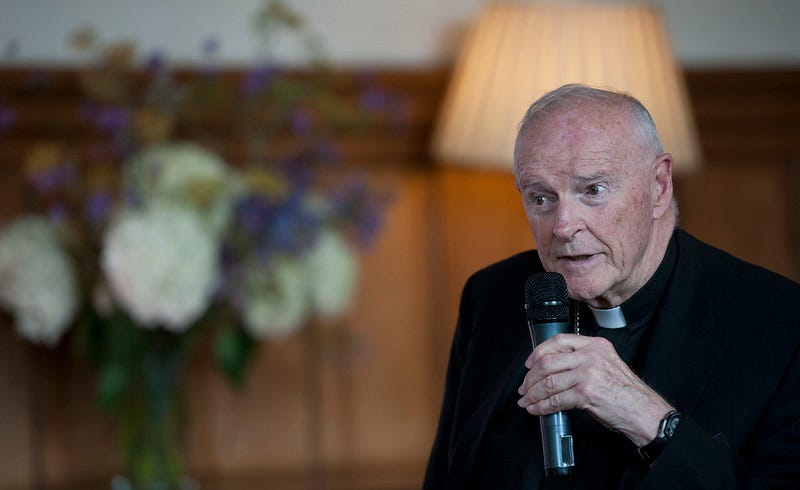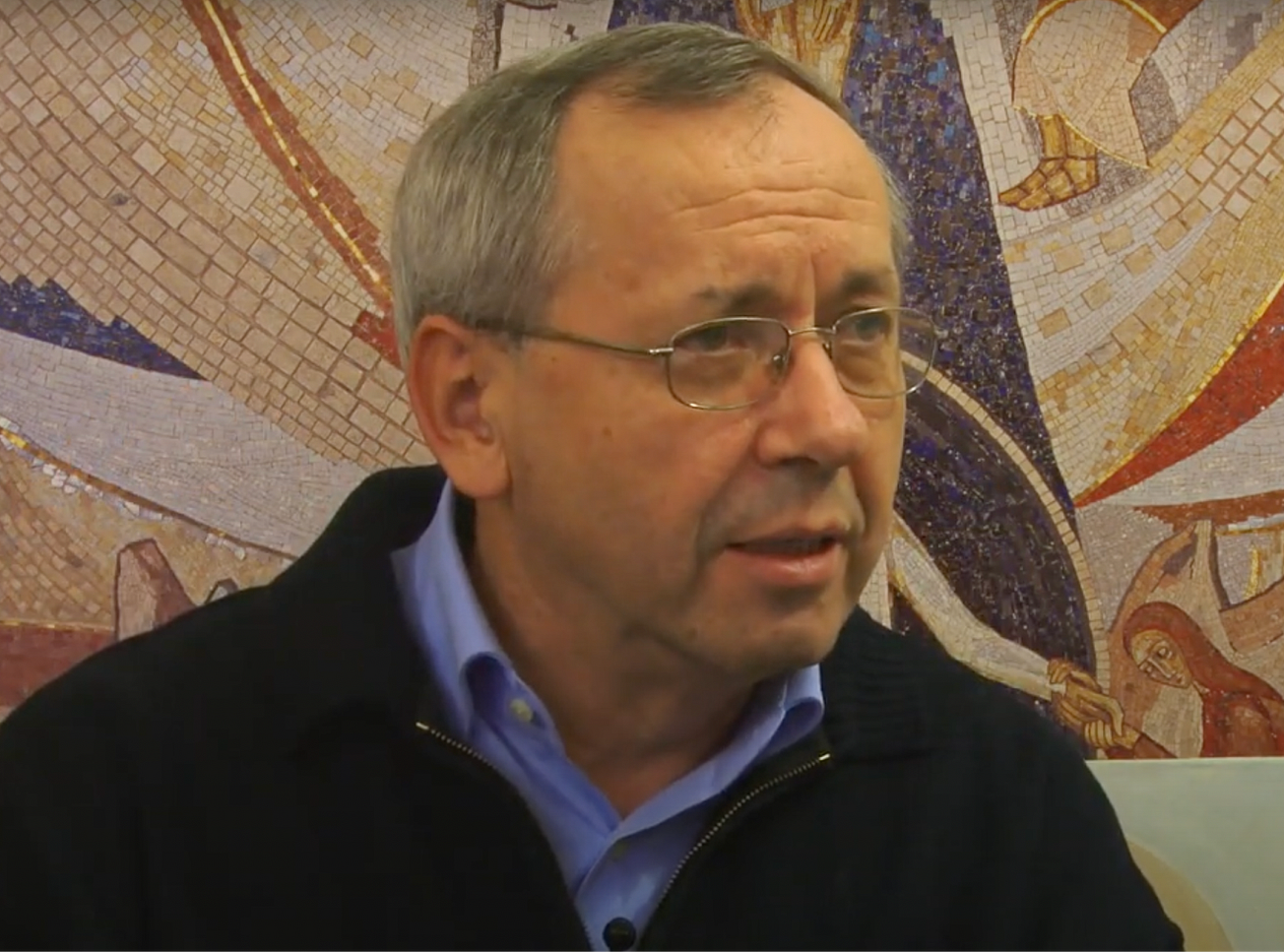Former cardinal Theodore McCarrick was criminally charged in Massachusetts last month with sexually assaulting a 16-year-old during a 1974 wedding reception at Wellesley College in Wellesley, Massachusetts.
McCarrick was initially summoned to appear in court this week, on Thursday, August 26. But his first court date — called an arraignment — has been rescheduled to next week; the hearing will take place on Sept. 3.
Here’s what an arraignment is, and what to expect at McCarrick’s.
The allegations
According to court filings obtained by the Boston Globe, McCarrick is alleged to have sexually molested the 16-year-old-boy, a family friend, during his brother’s wedding reception — including groping the teenager sexually within the sacrament of confession.
The alleged molestation was not reported as a singular occurrence. Rather, the alleged victim, who has not been named, claims McCarrick molested him frequently, on family trips to several states.
The alleged victim claims that McCarrick molested him subsequently at hotels in Massachusetts.
McCarrick can be criminally charged with assaults alleged to have taken place in 1974 because he was not a Massachusetts resident, and the statute of limitations’ time period for prosecution was effectively suspended when he left the state, according to the Boston Globe.
McCarrick’s (first) day in court
An arraignment is the first official court hearing in a criminal proceeding: Its purpose is to formally charge a defendant with a crime, and to discuss bail or incarceration arrangements.
At an arraignment, a defendant stands before a judge while the charges are read aloud, and in Massachusetts, a not guilty plea is usually entered into the record on behalf of the defendant. Not guilty pleas are usually standard at arraignments, because even if a defendant will eventually plead guilty in a plea bargain, that’s worked out with prosecutors after the arraignment.
After the plea is taken care of, the arraignment includes discussion between prosecutors and defense counsel about bail, incarceration, or any terms of supervision ahead of the trial. Once that’s resolved, the judge might hear arguments from prosecutors or defense counsel about any procedural issues which have already emerged in the case.
When that’s concluded, the judge, with input from lawyers on both sides, will set a date for the next step in the process, called a pretrial conference. That date could come several weeks after arraignment, mostly because of the court’s calendar. Both sides will prepare for trial ahead of the next meeting, and they could also discuss the possibility of a plea bargain.
Will McCarrick be there?
McCarrick is expected to be in court at the time of his arraignment, as is required of criminal defendants.
While some court business in Massachusetts moved to phone calls or Zoom sessions last year, the court system said in November 2020 that criminal arraignments would continue to take place in person. A person who does not attend his arraignment can be subject immediately to arrest.
While he will almost certainly be in the courtroom, McCarrick will likely say very little. A judge might ask him one or two questions about whether he understands some pretrial condition or some aspect of the charges, but he will not otherwise have much to say.
Most of the talking done during an arraignment is done by attorneys. McCarrick’s lawyer, Barry Coburn, declined to answer questions from The Pillar on the arraignment, trial strategy, and his client’s ability to travel for trial.
While each criminal count against McCarrick carries a maximum penalty of five years imprisonment, the former cardinal, at 91, is unlikely to be jailed before his trial. He may be warned to have no contact with the alleged victim, or some other conditions may be placed upon him ahead of the trial.
McCarrick has not been seen in public since before allegations of serial sexual abuse began to be revealed against him in June 2018. He has since been laicized, and will therefore not be dressed in clerical garb during his court appearance.
How long will it take?
Arraignments tend to be quick.
In January 2019, actor Kevin Spacey was arraigned in Massachusetts for one count of indecent assault and battery on a person over 14 — the same crime for which McCarrick will face three counts.
The charges against Spacey were eventually dropped for lack of evidence. But Spacey’s arraignment took fewer than 10 minutes, typical of an arraignment hearing.
Most of the time was caught up in an evidentiary procedural discussion and scheduling the next hearing.
What will happen at the (eventual) trial?
McCarrick has not responded directly to the allegation against him, although his lawyer has told media he looks forward to addressing things in court.
Mitchell Garabedian, an attorney who represents the alleged victim, told The Pillar that “it takes an enormous amount of courage for a sexual abuse victim to report having been sexually abused to investigators and proceed through the criminal process.”
Asked for a prediction on the trial’s outcome, Garabedian said the trial will “let the facts be presented, the law be applied, and a fair verdict rendered.”




